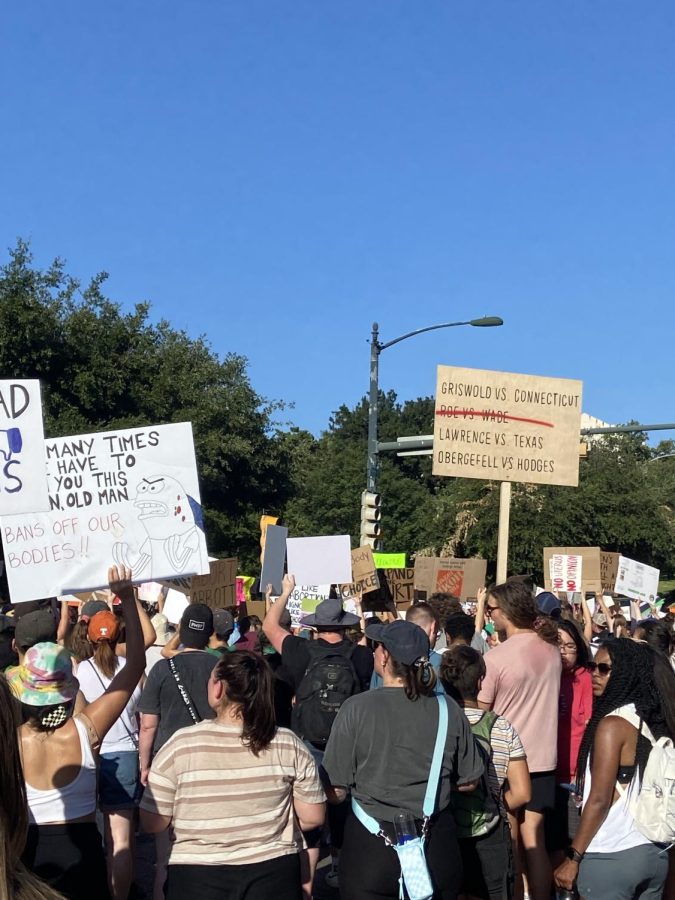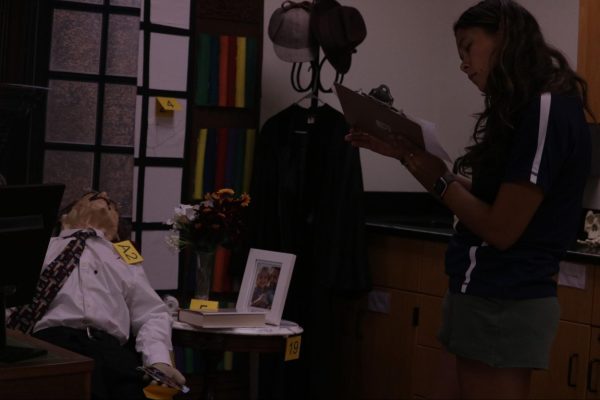What the Overturn of Roe v. Wade Means for Texans
Image by Ashley Mulhall
Protests march at a rally in Austin on June 24, the day the Supreme Court announced their decision overturning Roe v. Wade.
On Friday, the Supreme Court overturned Roe v. Wade, a landmark case protecting the constitutional right to abortion. Roe v. Wade had been in effect nationally for 49 years. Now, the Supreme Court’s decision will allow states to decide whether or not to allow abortion.
Texas has a “trigger law” in place in the eventuality that Roe v. Wade is overturned. It goes into effect 30 days after the decision and bans abortion. The only exceptions to the law would be to prevent death or “substantial impairment of major bodily function” of a pregnant woman. The law makes performing an abortion a felony. Doctors who do so could be punished with life in prison and up to a $100,000 fine. Those receiving abortions will not be prosecuted under this law.
Despite the trigger law not officially being in place yet, abortions stopped the day of the decision, though some have now resumed. Texas Attorney General Ken Paxton said that a law prohibiting abortion, which was put in place before Roe and never repealed, still stands – and could be enforced. But, on June 28, a Harris County judge temporarily blocked this law with a restraining order, allowing some clinics to continue providing abortion services until a hearing on the order July 12. These clinics will still be prohibited from providing abortions after six weeks of pregnancy because of Senate Bill 8 (commonly referred to as the Heartbeat Bill) that was in place before the Supreme Court’s decision.
There have been questions over the ruling’s impact on access to Plan B and contraceptives. The legality of these options remain intact, but some believe the overturn of Roe v. Wade could have implications for other court cases, such as those decided in the 1960s and 1970s that claim a constitutional right to purchase contraceptives.
Though Supreme Court Justice Samuel Alito claimed that the ruling applies only to abortion, Justice Clarence Thomas said in a concurring opinion that the court should review other precedents set by them in similar rulings. This includes other cases that established implied constitutional rights, including one legalizing same sex marriage.
The decision’s only immediate effect on Texans is an end to legal abortions in the state. However, the conservative court has revealed its ability to put into place drastic legislative changes and the case serves as an indicator of further change Texans might see going forward.
Your donation will support the student journalists of McNeil High School. Your contribution will allow us to purchase equipment and cover our annual website hosting costs.











